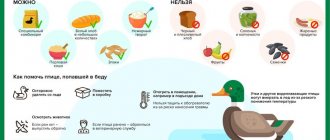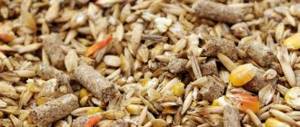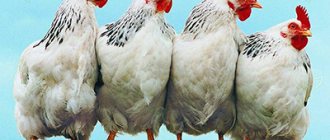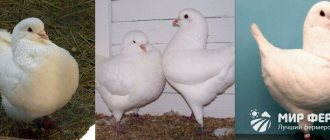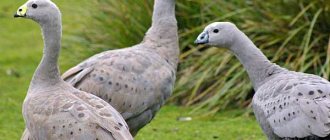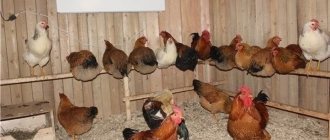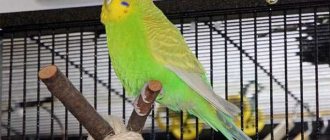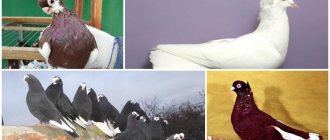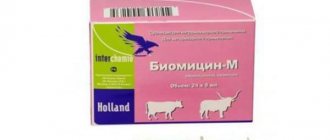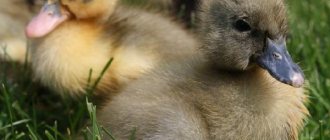Keproceril is a drug that is often used in poultry farming to combat diseases associated with the negative effects of pathogenic microflora on the body.
This product not only destroys harmful microflora, but also compensates for the lack of microelements, which has a positive effect on the health of birds.
The drug is manufactured by Kepro BV (Netherlands). Active ingredients: erythromycin, streptomycin, colistin, oxytetracycline.
The drugs are registered by WHO and are used in medicine. Therapeutic form: powder for oral use.
Pharmacological properties
Keproceril WSP belongs to combination drugs.
The active components included in Keproceril WSP provide a wide range of antimicrobial effects of the drug and activate metabolic processes in the body.
Colistin is a polypeptide antibiotic active against gram-negative microorganisms, including Escherichia coli, Salmonella spp., Pseudomonas aeruginosa, Klebsiella pneumoniae, Proteus spp., Shigella spp.
The mechanism of the bactericidal action of colistin lies in its combination with bacterial lipoproteins and disruption of the permeability of the cell wall, which leads to the loss of amino acids, inorganic ions, purines, pyrimidines and causes the death of the bacterial cell.
Oxytetracycline hydrochloride is an antibiotic from the tetracycline group, active against most gram-positive and gram-negative microorganisms, including Escherichia coli, Salmonella spp., Staphylococcus spp., Streptococcus spp., as well as Rickettsiae spp.
The mechanism of its bacteriostatic action is based on the suppression of protein synthesis by the microbial cell (blockade of ribosome function) and blockade of RNA synthesis.
Erythromycin is an antibiotic from the macrolide group that reversibly binds to the 50S subunit of ribosomes, disrupting the formation of peptide bonds between amino acid molecules, and blocks the synthesis of microbial proteins.
It has bacteriostatic activity (in high doses it can exhibit a bactericidal effect) against gram-positive microorganisms.
Including Staphylococcus spp., producing and non-producing penicillinase, Streptococcus spp., Corynebacterium spp. and gram-negative microorganisms - Haemophilus spp., Bordetella spp., as well as Mycoplasma spp., Chlamydia spp., Treponema spp. and Rickettsia spp.
Streptomycin sulfate is an antibiotic from the group of aminoglycosides and has a pronounced bactericidal effect, mainly on gram-negative microorganisms, including Escherichia coli, Salmonella spp., Pasteurella spp., Klebsiella spp.
Penetrates inside the microbial cell due to active transport and passive diffusion, irreversibly binds to specific receptor proteins on the 30S ribosomal subunit.
As a result, the formation of the initiation complex between the messenger RNA and the 30S subunit of the ribosome is disrupted, incomplete proteins are synthesized, and cytoplasmic membranes are damaged, which leads to the death of the bacterial cell.
The vitamins included in the preparation, activating metabolic processes in the body, help normalize metabolism.
After oral administration, the active components of the drug are absorbed in the gastrointestinal tract, partially metabolized in the liver, and excreted mainly in the urine, and to a lesser extent in the bile.
In terms of the degree of impact on the body, Keproceril WSP is classified as a moderately hazardous substance (hazard class 3 according to GOST 12.1.007-76).
Instructions for use in veterinary medicine
Keproceril WSP is used for therapeutic and treatment-and-prophylactic purposes orally, individually or in a group with drinking water in a daily dose of 1 g per 1 liter of water for 7 days.
During the treatment period, birds should only receive water containing the drug. The medicinal solution is prepared daily based on the animal’s daily water requirement.
In case of an overdose of the drug, it is possible to reduce the consumption of food and water by animals and reduce weight gain.
No specific effects of the drug upon its first use and discontinuation were identified.
You should avoid skipping the next dose of the drug, as this may lead to a decrease in its therapeutic effectiveness. If one dose is missed, the use of the drug is resumed at the same dosage and according to the same regimen.
Prevention
During the prevention of diseases of the gastrointestinal tract, it is recommended to leave the dosage the same.
A slight reduction is allowed: 1 gram of substance per 1.3 - 1.5 liters of water. But then the effect of treatment will be less.
However, if the bird is healthy, and Keproceril is used for prophylactic purposes, then the negative effects of antibiotics will also be less.
Veterinarians recommend preventing gastrointestinal diseases in birds twice a year. This will save the livestock.
In order not to suffer losses while using the medicine, you can divide the bird population into 2-3 groups, giving the drug first to one, then to the other.
This measure will make it possible to generate income from those birds that are not under the influence of Keproceril.
Regardless of whether the medicine is used for treatment or prevention, the water with it should be used in full throughout the day. The next day it needs to be replaced.
You cannot use the same solution for several days, since the beneficial properties of the active components are preserved precisely for the first 24 hours after dissolution in water.
For pigeons
The drug is also suitable for pigeons, the dosages will be identical.
How to use Keproceril
There are different dosages, depending on why you need to use this medicine. However, it is recommended to further consult with your veterinarian.
Treatment
Application is carried out orally in an individual way. If the livestock is large enough, then it is necessary to mix the drug with water. The daily dosage is 1 gram of substance per 1 liter of water. The course of treatment is 7 days. Birds should not receive water without medication during this period.
Sale of live birds can be carried out only three weeks after the end of treatment
Important. The sale of live birds, carcasses, semi-finished products and eggs during treatment is not allowed. It is also necessary to wait until the substances are completely eliminated from the body before selling the product. The minimum period is 21 days. In case of forced slaughter, the meat can be used as feed for fur-bearing animals.
Prevention
During the prevention of diseases of the gastrointestinal tract, it is recommended to leave the dosage the same. A slight reduction is allowed: 1 gram of substance per 1.3 - 1.5 liters of water. But then the effect of treatment will be less. However, if the bird is healthy, and Keproceril is used for prophylactic purposes, then the negative effects of antibiotics will also be less.
In order to protect birds from gastrointestinal diseases, it is allowed to use Keproceril as a preventive measure.
Veterinarians recommend preventing gastrointestinal diseases in birds twice a year. This will save the livestock. In order not to suffer losses while using the medicine, you can divide the bird population into 2-3 groups, giving the drug first to one, then to the other.
This measure will make it possible to generate income from those birds that are not under the influence of Keproceril.
The solution with Keproceril must be changed every day, otherwise it will not work properly
Regardless of whether the medicine is used for treatment or prevention, the water with it should be used in full throughout the day. The next day it needs to be replaced. You cannot use the same solution for several days, since the beneficial properties of the active components are preserved precisely for the first 24 hours after dissolution in water.
Contraindications
It is not possible to give this drug to birds in all cases.
Sometimes it can only aggravate the situation or be ineffective:
- Keproceril should not be given to birds with hypersensitivity to the active substance and auxiliary drugs. Finding out whether this problem exists is only possible through experience. If the bird gets worse, you will definitely need to contact a veterinarian and stop giving Keproceril;
- The drug is not recommended for birds with liver and kidney problems. Such diseases prevent the timely removal of substances from the body, which can result in an overdose;
- The use of Keproceril by laying hens is not recommended, as the active substance can penetrate into the eggs;
- the drug is ineffective for young animals and birds older than 16 weeks.
Why solder birds additionally?
Many will say that chickens used to grow well without antibiotics and vitamins. And now schemes are being created, and there are disputes about what to feed broilers so that they do not die and grow faster. It is worth considering that times have changed, people have modified breeds. Many types of crosses, chickens and broilers have become highly vulnerable to diseases and infections. Few people want to risk being left without young animals, since buying them costs money.
Read also: How to plant orchid shoots
On a note! As practice shows, outbred chickens do well without additional watering, since their immunity is much stronger from birth.
Cross-breeds and broilers are especially vulnerable to infections. In addition to vitamins, their productive growth requires the entire range of biologically active substances. Therefore, experienced poultry farmers advise supplementing purebred chickens with ready-made, complete concentrates.
Giving vitamins to chickens
It is best to use drugs in liquid form, introducing them into the drinking bowl. This method has a number of advantages:
- you can give the necessary medications at one time;
- it does not require much effort and time for soldering;
- Aqueous solutions of most medications are absorbed much better.
Important! Before using an antibiotic or any other drug, you should read the instructions and follow them completely. It is also necessary to take into account that the meat of birds that have been administered medications cannot be used for food for 2 weeks.
Reviews
According to customer reviews, the advantages of the product include:
- acceleration of metabolism;
- acceleration of metabolic processes;
- strengthening the immune system of poultry;
- restoration of the gastrointestinal tract;
- replenishing the lack of essential microelements.
It is important to administer the medication strictly as directed or recommended by your veterinarian.
Only a doctor can increase or decrease the recommended dosage, depending on the type of infection and the severity of the disease.
It is worth noting that this medicine perfectly combines a vitamin complex and antibiotics, which can significantly reduce the negative effect on the body of poultry.
Various additional soldering schemes
Today there are two most common schemes for soldering chickens. Everyone, depending on their beliefs and views, chooses what to feed their chickens in the first days of life at home. Some people make plans on their own.
Scheme No. 1 - the most common
This option is suitable for those who believe that antibiotics should not be given in the first days of life, since small birds do not yet have formed microflora in their stomachs. But in this case, the question arises of what to feed day-old chicks to strengthen their immunity. In order for the digestive system to form correctly, young birds should be provided with the correct diet, which should contain minerals, vitamins, and amino acids.
Chickens and antibiotics
If in the first week the young animals catch an infection, they are given an emergency course of antibiotic treatment. Otherwise, the chickens will die one by one.
- Day 1: On the first day of life, chicks obtain nutrients from the residual yolk found in the yolk sac. To make it resolve faster, you need to give the chickens additional glucose. Even sweet water will help you survive stress after birth.
- 2-5 days. These days, young birds are supplemented with vitamin complexes. For such purposes, you can purchase “Nutril” or “Chiktonik”.
- 6-8 days. During these three days they take a break so as not to cause an excess of vitamins in the small organisms of birds.
- 9-11 days. A very dangerous period, since at this time the death of birds is most often observed. Antibiotics will help strengthen the immune system. They are selected so as not to cause addiction. The most commonly used drugs are from the fluoroquinolone series (enroflox, baytril, ernostin). In farms where chickens are constantly raised, antibiotics are regularly changed. On average, habituation takes 3 years to form.
- 12-18 days. A break is taken for a week.
- 19-21 days. The course of vitamins is repeated.
- 22-24 days. Birds are allowed to rest after taking vitamins.
- 25-27 days. The course of antibiotics is repeated.
- 28-34 days. Break.
Important! Antibacterial drugs developed for humans should not be used for birds. You should purchase them from veterinary pharmacies. Farmazin has proven itself to be excellent.
Then soldering is repeated in the described sequence, alternating vitamins and antibiotics. After the chickens get stronger, the interval between doses of the drugs is increased from 1 week to 2. Most often, the regimen is used for a month, since broilers begin to be killed from the 45th day of life. They are grown for a maximum of 60 days, and 2 weeks before the end, antibiotics are stopped.
Scheme 2
The second option is suitable for those who believe that antibiotics can be given to birds from the first day of life.
- 1-5 days. To prevent bacterial infections in chickens, a course of taking an aqueous solution of drugs such as Baytril or Enroxil is carried out.
- 6-11 days. To prevent vitamin deficiency, a course of vitamin complexes is performed. You can use Nutril.
- 12-14 days. At the next stage, preventive measures are taken to strengthen immunity against coccidiosis. To do this, you will need to administer special coccidiostatic drugs to the chickens, for example, Baycox.
- 15-17 days. The course of taking vitamin complexes is repeated.
- Day 18-22. The antibiotic is taken again.
On a note! Many experienced poultry farmers have come to the conclusion from their practice that excessive use of antibiotics is harmful to birds. It is better if you use vitamin complexes as soldering.
Read also: Ceiling insulation in an old house
Conditions and shelf life
Store the drug in the manufacturer's sealed packaging in a dry place, protected from light, separately from food and feed at a temperature of 20 °C to 25 °C.
The shelf life of the drug, subject to storage conditions, is 2 years from the date of production. It is prohibited to use Keproceril WSP after the expiration date.
Keproceril WSP should be stored out of the reach of children.
Unused medicinal product is disposed of in accordance with legal requirements.
Use of the medicine
Apply Pulsoceril orally by mass or personal method with water in portions: - poultry, etc. pigeons: 1.0 g per liter of water The drug is used every day for seven days in a row. The water mixture of the substance must be used within 24 hours.
No side effects or complications were identified when using the therapeutic resource in accordance with the guidelines.
Storage of Pulsoceril
Store in a dry, dark place at a temperature of two to 25°C.
Pulsoceril is considered an unconditional analogue of Keproceril
If you decide to raise chickens and broilers on your farm, it is important to know how to care for them and what to feed the chickens at home in the first days of life so that the entire brood does not die. If you organize proper nutrition and additionally water the young animals with special compounds, then the survival rate will be 100%.
Personal prevention measures
The instructions say that all work must be performed with caution, using special clothing that will protect against the negative effects of the drug.
Workwear includes:
- respirator;
- special plastic glasses;
- disposable latex gloves.
Such protection will protect sensitive areas of the body from an aggressive environment. During the entire work, it is prohibited to drink or eat food.
After all manipulations are completed, you must thoroughly wash all exposed areas of the body, as well as your hands, with soap. The mouth needs to be rinsed with running water.
This will allow you to wash away any remaining drug from the skin. In case of accidental contact of the medicine with the mucous membranes, it is necessary to rinse with plenty of clean water.
If there is hypersensitivity to the active substance, then the possibility of contact with it should be excluded.
To do this, you can use special overalls when diluting Keproceril in water or when taking it orally.
If the medicine enters the body or an allergic reaction is detected in a person, then you should immediately consult a doctor.
You must have the instructions for this medicine with you.
Empty containers should not be used for household purposes. It must be disposed of without fail along with other solid waste.
Advice from experienced poultry farmers
Experienced bird breeders recommend following simple rules when carrying out additional soldering:
- If you have started supplementing young birds with antibiotics, then it is strictly not recommended to interrupt the course at the first knocks. You should continue taking the medications according to the chosen regimen for at least 2-3 days. Abruptly interrupting the course will cause instant addiction, and the antibiotic will not help in the future.
- To prepare the solution, you must use only settled water, raw or boiled.
- When soldering, it is important to ensure that the drug is added to all drinkers installed in the chicken coop.
- Water should not contain excess calcium and magnesium. If the water does not meet the requirements, it is better to use purchased clean water.
- Solutions should not be stored. Their medicinal properties last only for 24 hours.
- If a chick appears that looks lethargic and lags behind the total weight, then we may be talking about an illness. It is worth giving all birds a course of antibiotics as an emergency. You can use Tromexin, the dissolution rate of which is 1 g per 1 liter of water. The course is carried out for 5 days, at the end of which “Chiktonik” is given.
- If the first symptoms of the disease are noticed, you should not rely on your own strength and experience. It is necessary to invite a veterinarian who can most accurately diagnose and prescribe treatment.
- Diarrhea is often observed in young chickens; the question immediately arises of what to feed the chickens in this case. It can be treated with antibiotics, or you can try a simple, proven folk method - treating diarrhea with black tea. This method has been used by chicken owners for a long time. Brewed tea is added to drinking bowls over several days. Very often the result is positive.
Read also: Blanks for New Year's crafts
Chickens at a young age are very tender and have weak immunity. In order to preserve young animals in full, it is necessary to carry out timely preventive doses of various drugs: vitamin complexes and antibiotics. Also, a balanced and proper diet is of great importance for good growth.
When purchasing young birds, both experienced poultry farmers and beginners are faced with many infectious problems. For several years now, keproceril for birds has been a universal remedy that can help at the right time.
Analogues - Pulsoceril
Pulsoceril is an analogue of the drug keproceril and is an effective combination of broad-spectrum antibiotics and vitamins.
Pulsoceril WSP is an excellent prevention and treatment of diseases caused by gram-negative and gram-positive bacteria.
The vitamins included in the drug normalize metabolism, activating metabolic processes in the body.
The good solubility of the mixture allows the components to be quickly absorbed, which increases their bioavailability, allowing for maximum therapeutic effect.
Two similar drugs (pulsoceril and keproceril) are used to treat bacterial infections of the gastrointestinal tract - salmonellosis, colibacillosis, pasteurellosis, as well as streptococcal and staphylococcal infections in farm animals, including birds.
